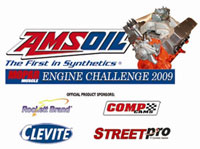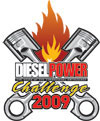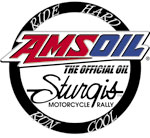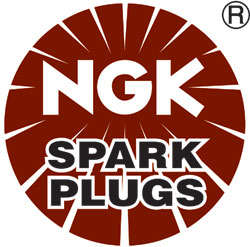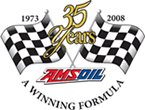The Effects of Turbochargers on Modern Engines
Why All Turbocharged Engine Need AMSOIL
The industry trend toward smaller engines that deliver increased power and fuel efficiency has been well documented.
You’ve heard us talk at length about the key technologies that enable today’s advanced engines – turbochargers, gasoline direct injection (GDI) and variable valve timing (VVT).
The June 2015 edition of AMSOIL Magazine includes a nice explanation of each technology and how they each affect motor oil. In short, they’re brutal on oil. It’s one of the reasons more automakers are installing synthetics at the factory.
GDI technology locates the fuel injectors directly in the cylinder, as opposed to the manifold. This arrangement allows for greater control over the fuel injection, allowing engineers to fine-tune engines for better efficiency and power.
Although, one side effect is fuel contaminating the oil. As fuel is sprayed into the combustion chamber, it can wash past the rings and down the cylinder walls, into the oil sump.
Ford has seen the issue frequently enough to release a technical service bulletin (14-0040) titled “Fuel Odor From Engine Oil and/or Engine Oil Level Overfull” to address F-150 trucks equipped with the 3.5L Ecoboost engine.
Fuel dilution varies by engine type and driving conditions, with some vehicles showing no issues. There are two main side effects of fuel in the oil.
First, fuel thins the oil, sometimes reducing the viscosity below the specified grade.
If not accounted for in the design of the engine, this can impact wear rates and have an effect on systems that use the oil to function, like VVT.
Second, significant fuel contamination increases the rate of oil degradation. For these reasons, oil analysis labs typically condemn oil samples when the fuel content is greater than five percent.
Many GDI engines are turbocharged (TGDI).
Turbos push more air into the combustion chamber and tuning for efficiency and fuel economy especially when combined with other technologies, such as direct injection.
Operating at up to 150,000 rpm on exhaust gases that can exceed 1,000ºF, turbos create extreme conditions that can cause low-quality oils to quickly break down, creating deposits and shortening the life of the oil.
By 2020, industry experts predict nearly every new vehicle sold will come equipped with GDI technology, and the vast majority will be turbocharged.
Many customers – and even more in the future – probably see only the tremendous benefit of improved power and fuel economy from their TGDI vehicles.
Most don’t realize the toll modern engines take on motor oil. Like most vehicle manufacturers, AMSOIL has long recommended different service intervals based on “normal” or “severe” driving conditions.
Turbocharged vehicles are automatically included in the severe service category due to the extreme heat.
To ensure customers have the information they need to properly maintain their vehicles, we’re soon adding a notice to the AMSOIL Product Guides at www.amsoil.com that reminds owners of turbocharged vehicles to follow the severe-service recommendation. That means customers using Signature Series Synthetic Motor Oil in TGDI engines can extend drain intervals up to 15,000 miles/700 hours/12 months, whichever comes first, and should only extend oil changes beyond that with the guidance of oil analysis.
As proven in numerous tests, AMSOIL synthetic motor oils remain the best oil for these challenging engines. For example, the TEOST Test determines an oil’s tendency to form deposits at high temperatures and is a good indicator of turbocharger protection.
In the test, Signature Series 5W30 Synthetic Motor Oil minimized deposits and easily surpassed API SN requirements. In the extreme heat of the Sequence IIIG Test, Signature Series scored 86 percent better for piston deposits than required by API SN, even after doubling the length of the test.
It may seem like a small issue, and in many ways all we’re doing is encouraging motorists to follow the guidelines we’ve had in place for years.
For more information on this topic or any other question you may have feel free to contact me.
If you are interested in becoming an AMSOIL dealer follow the link below to get started.
How to Become an AMSOIL Dealer
Sincerely,
Jesse Hull
Mechanical Engineer
AMSOIL Direct Jobber
913-713-8850 | Privacy Policy

